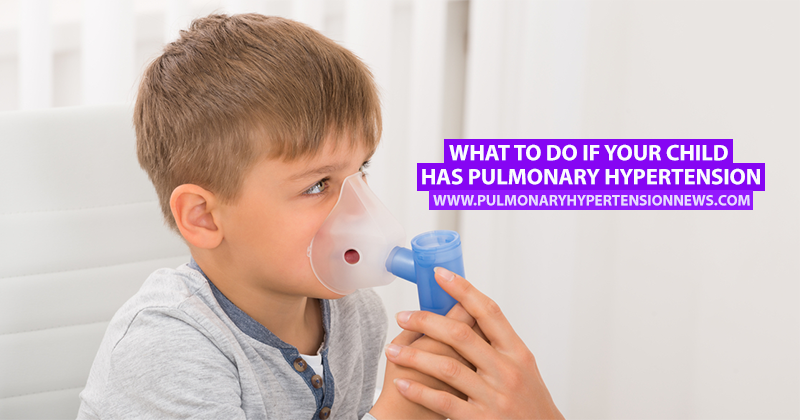What to Do If Your Child Has Pulmonary Hypertension

Pulmonary hypertension cuts off blood flow to the lungs and parts of the heart. Some of the symptoms of the disease include fatigue, dizziness and difficulty breathing. For these and other reasons, active people find living with PH very difficult, and there are few people more active than children.
Because children are much more active than most adults, the symptoms can be challenging to spot. If a child runs and ends up breathless, sweating and tired, they might think that’s normal because they haven’t learned their limits yet. This, coupled with the inability many children have to accurately express themselves, can make it more difficult for parents to realize what’s going on.
MORE: Learn more about pulmonary hypertension and how it affects children
When parents finally realize what’s going on, there’s a period of adjustment as most don’t expect their child to have a lifelong disease, much less a rare one. Once the shock of the news wears off, parents realize that with some significant lifestyle changes, most children with PH can live rewarding and happy lives.
But they’ll need help. The best way to help a child with PH is to advocate for them, but to do that, parents need to be informed. What medications should they take? Is the treatment the current doctor’s suggesting a good option for the child? It’s a good idea for parents to write down everything they think might be useful (previous treatments, medications, doctors’ advice, what did the PH specialist advised was best in certain situations, etc.) in the same place so it’s always easily accessible.
Another thing parents struggle with is letting children be children. They want to protect them and while that’s understandable, being overprotective is not beneficial to the child. Children need to learn their limits and parents can help them do that. Find fun activities that are within their abilities and encourage them to try new things. Make sure they know not to feel embarrassed about being sick or of any symptoms that might pop up.
MORE: Study summarizes hospitalization trends in children with pulmonary hypertension.
School can be an adjustment when a child has a chronic illness. Parents will need to think about a lot of details, and prepare for a variety of situations.
First, every staff member that has even minimal contact with the child needs to be aware of their condition. This will help parents coordinate with the school so there’s always a plan in place in case of an emergency. That’s especially true for key members of staff like the gym teacher, the classroom teacher and the principal. If for some reason parents feel they can’t handle establishing an emergency plan (no time, not informed enough, feels uncomfortable or anxious), the clinic that handles the child’s care might be able to send either a nurse or a child life specialist to the school to help.
Talk to the child and ask if they are OK with one of their parents or their classroom teacher telling their classmates about PH and what that means. This will ensure the child doesn’t end up being seen as a mystery if they miss school or can’t go to gym class, which might make them feel shunned or isolated. Children are naturally curious and they want to be helpful so it would just be an extra “layer” of protection. This way their classmates will know when something’s wrong and if they should get help.
And finally, if parents aren’t well, they aren’t able to look after their children as they’d like to so it’s important they take the time to care for themselves as well.
MORE: Physical, emotional and financial burden felt by caregivers of PAH patients spotlighted
Pulmonary Hypertension News is strictly a news and information website about the disease. It does not provide medical advice, diagnosis or treatment. This content is not intended to be a substitute for professional medical advice, diagnosis, or treatment. Always seek the advice of your physician or other qualified health provider with any questions you may have regarding a medical condition. Never disregard professional medical advice or delay in seeking it because of something you have read on this website.







